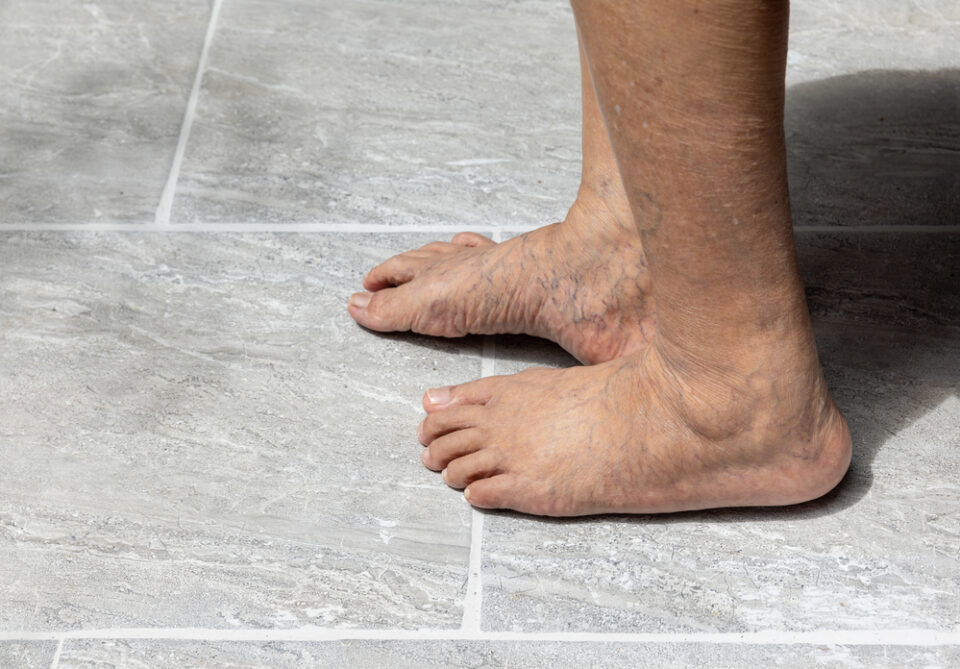As we age, our feet tend to go through some changes. In fact, they become more prone to developing issues such as dry skin, corns and calluses, and joint pain if they are not properly cared for. Caring for our aging feet can be tricky since there is no one-size-fits-all approach. Everyone’s feet are unique, but there are certain steps that all people should take to ensure their feet remain healthy and strong as they age. In this blog post, we will explore what you need to know about caring for aging feet and keeping them healthy.
Table of Contents
The Importance of Foot Care
As we age, our feet can go through a lot of changes. The skin can become thinner and drier, nails can become harder and more brittle, and the fatty padding that helps cushion the feet can start to shrink. All of these changes can make our feet more susceptible to problems like blisters, bunions, corns, and calluses.
That’s why it’s important to take good geriatric foot care of your feet as you age. Here are a few tips:
• Wash your feet every day with soap and warm water. Dry them thoroughly, especially between the toes.
• Inspect your feet regularly for any cuts, scrapes, bruises, or other problems. If you see anything that concerns you, don’t hesitate to call your doctor or podiatrist.
• Keep your feet moisturized by applying lotion or cream regularly, especially after bathing. Avoid putting lotion between your toes—this can lead to fungal infections.
• Wear shoes that fit well and provide support. Avoid pointy-toed shoes or high heels if you have bunions or other foot problems. And always wear socks or stockings with shoes to help protect your feet from blisters and rubbing.
Common Foot Problems in the Elderly
As we age, our feet can begin to experience a variety of problems. Some of the most common foot problems in the elderly include:
-Arthritis: Arthritis is a common condition that can cause pain and stiffness in the joints. It can make it difficult to walk or stand for long periods of time.
-Bunions: A bunion is a deformity of the big toe joint. It can cause the big toe to turn inward and the joint to become enlarged and painful.
-Corns and calluses: Corns and calluses are thickened areas of skin that develop in response to friction and pressure. They can be painful and make it difficult to walk or wear shoes.
How to Prevent Foot Problems?
As we age, our feet can become more susceptible to problems. However, there are some things we can do to prevent foot problems from developing, or to keep them from getting worse. Here are some tips:
-Wear supportive shoes. This is especially important if you have any foot pain or problems. Look for shoes with good arch support and a cushioned sole. Avoid high heels and tight shoes that pinch your feet.
-Exercise your feet every day. This helps keep the muscles and tendons in your feet strong and flexible. Try simple exercises like picking up a towel with your toes or rolling a ball under your foot.
-Don’t go barefoot. Walking around without shoes can put you at risk for cuts, scrapes, and other injuries to your feet. Always wear shoes when you’re outside, even if you’re just going for a walk around the block.
Tips for Caring for Aging Feet
As we age, our feet go through a lot of wear and tear. Over time, this can lead to problems such as calluses, bunions, and hammertoe. Here are some tips for keeping your feet healthy as you age:
-Wear comfortable shoes that fit well. This will help prevent blisters, calluses, and other foot problems.
-Don’t go barefoot. Walking around without shoes can lead to cuts and scrapes on your feet. It’s also important to wear shoes that provide good support to avoid injury.
-Keep your feet clean and dry. Wash your feet every day with soap and water, and make sure to dry them thoroughly afterwards. This will help prevent fungus and bacteria from growing on your skin.
-Trim your nails regularly. Long nails can cause problems such as ingrown nails or fungal infections. Be sure to trim straight across and avoid rounding the corners of your nails.
-Exercise caution when using home pedicure tools. Improper use of these tools can damage the skin on your feet or lead to infection. If you’re unsure how to use them correctly, it’s best to leave pedicure care to the professionals.

